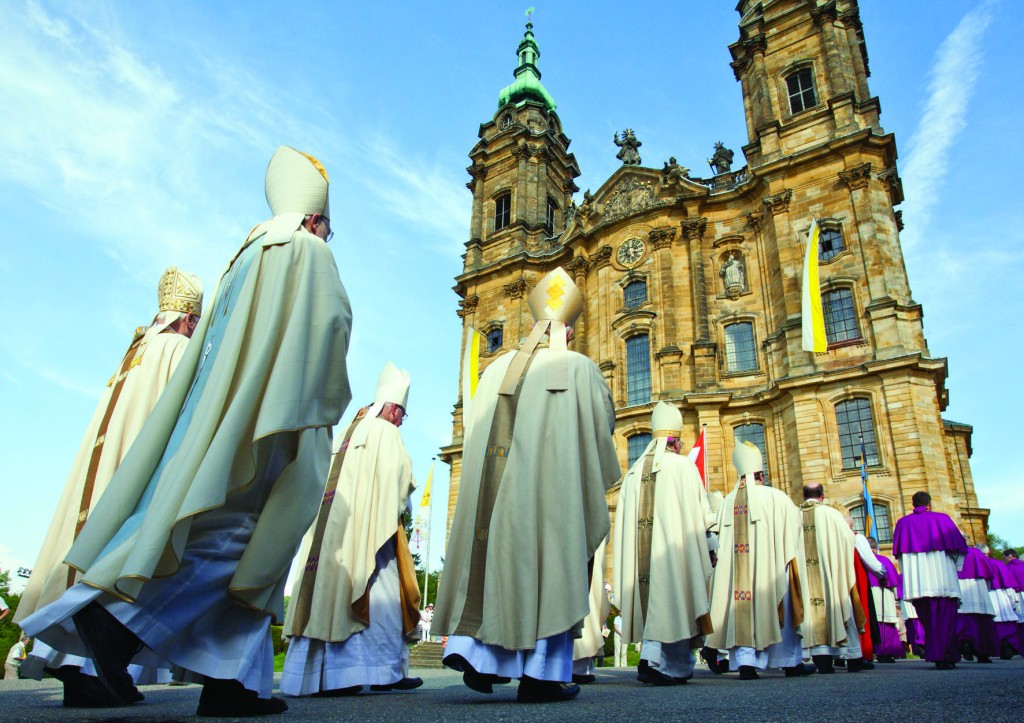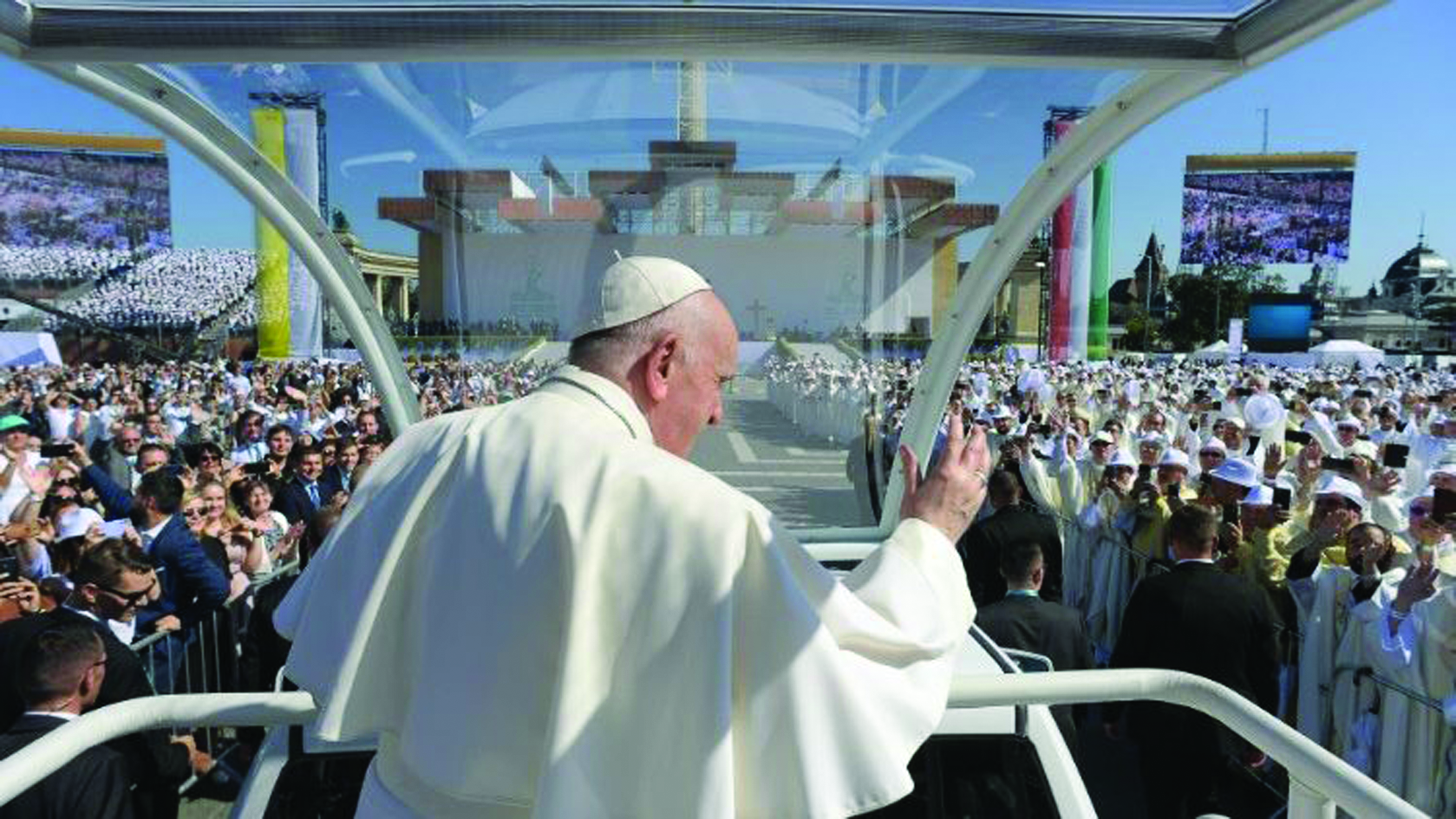
Bavarian bishops walk in procession to the Basilica of the Fourteen Holy Helpers near Bad Staffelstein, Germany (CNS photo/Daniel Karmann, EPA)
On November 20, noting that only 10 percent of German Catholics attend Mass every Sunday, Pope Francis said: “One can truly speak of an erosion of the Catholic faith in Germany”
Pope Francis on November 20 told the bishops of Germany that the upcoming Jubilee of Mercy offers the opportunity to “rediscover the sacraments of Penance and the Eucharist.”
The bishops were meeting with the Holy Father during their ad limina visit to Rome.
In a speech handed to the bishops at the meeting, Pope Francis noted a sharp decline in sacramental participation among the Catholics in Germany.
“Whereas in the 1960’s the faithful almost everywhere attended Mass every Sunday, today it is often less than 10 percent,” he said.
“The sacraments are approached less often,” the Pope added. “The Sacrament of Penance is often missing. Fewer and fewer Catholics receive the Sacrament of Confirmation or contract a Catholic marriage,” he continued.
“The number of vocations to the ministerial priesthood and to the consecrated life has significantly diminished. Given these facts, one can truly speak of an erosion of the Catholic faith in Germany.”
Pope Francis said the solution to the crisis depends upon overcoming “paralyzing resignation,” and cannot be based upon an attempt to “rebuild from the wrecks of ‘the good old days’ in the past,” but it can be inspired by the life of the early Christians.
He turned the bishops’ attention to the biblical figures of Priscilla and Aquila, the married couple who witnessed with their words and lives to the love of Christ.
“The example of these ‘volunteers’ can help us reflect, given the trend towards a growing institutionalization,” Pope Francis said. “We always inaugurate new facilities, from which, in the end, the faithful are missing,” Pope Francis said.
“It is a sort of new Pelagianism, which puts its trust in administrative structures, in perfect organizations” – the Pope continued – “excessive centralization, rather than helping, complicates the life of the Church and her missionary dynamics.”
He told the bishops to give more attention to Confession during the Jubilee of Mercy, since “in Confession is the beginning of the transformation of each individual Christian and the reform of the Church.”
“It is also necessary to highlight the intimate connection between the Eucharist and the priesthood,” the Holy Father said.
“The precious collaboration of the laity, especially in those places where vocations are missing, cannot become a surrogate for the ministerial priesthood, or give it the semblance of being simply optional,” he said. “If there is no priest, there is no Eucharist.”
The Pope also said a task of the bishop which is always underappreciated is the commitment to life. “The Church must never get tired of being the advocate of life, and should never step back from proclaiming that human life must be protected unconditionally from conception to natural death,” he said.
He said any compromise on this issue makes one guilty of being part of a “throwaway culture,” noting the wounds caused in society due to the suffering of the weakest and most defenseless: the unborn, the elderly, and the sick.
“All of us in the end will suffer the painful consequences,” he said.
Pope Francis also spoke about the refugee crisis affecting Europe, and thanked the Churches and individual citizens who have offered their help, on both a material and human level, in accommodating those “seeking refuge from war and persecution.”
“In the spirit of Christ, we must continue to meet the challenge of the great number of people in need,” he said. “At the same time, we support all humanitarian initiatives to ensure that the living conditions in the countries of origin become more bearable.” (from Vatican Radio)






Facebook Comments